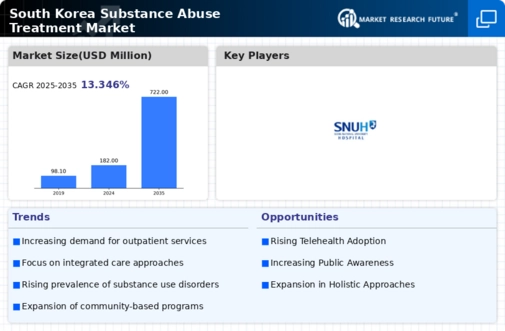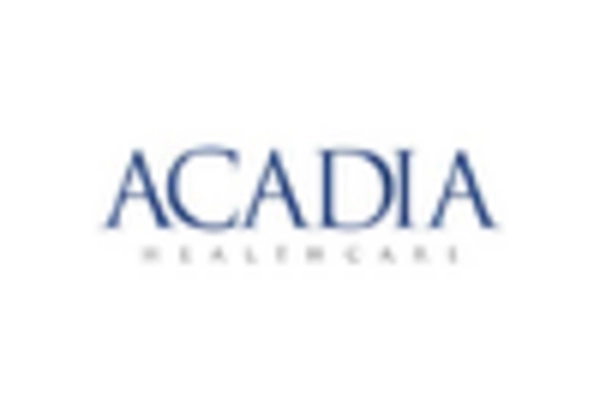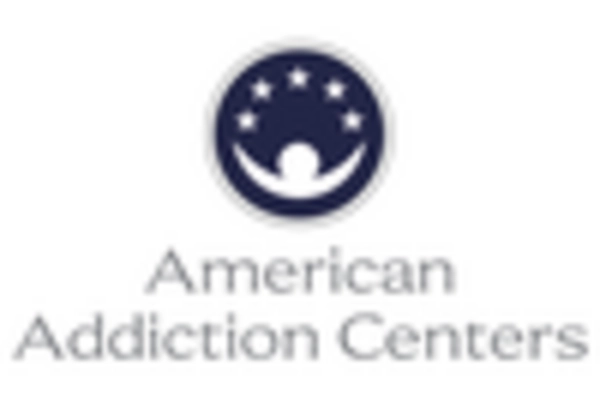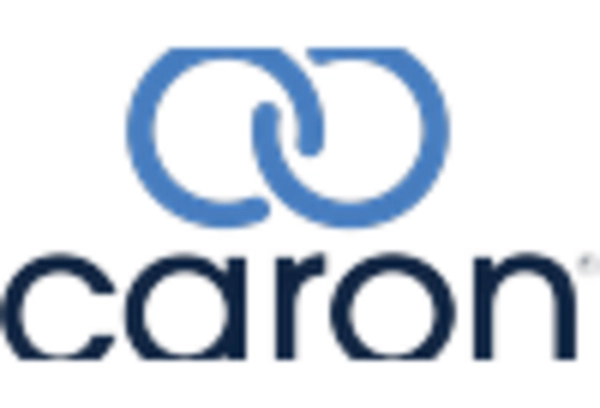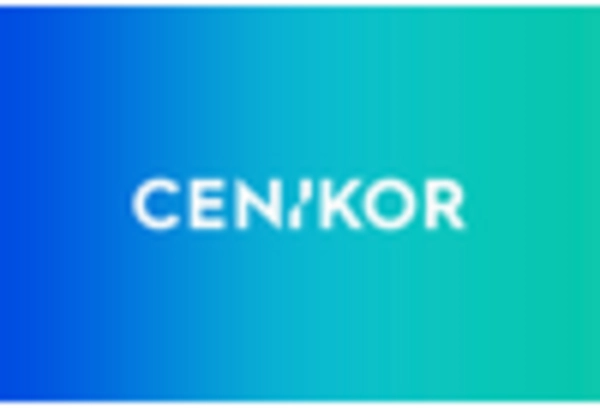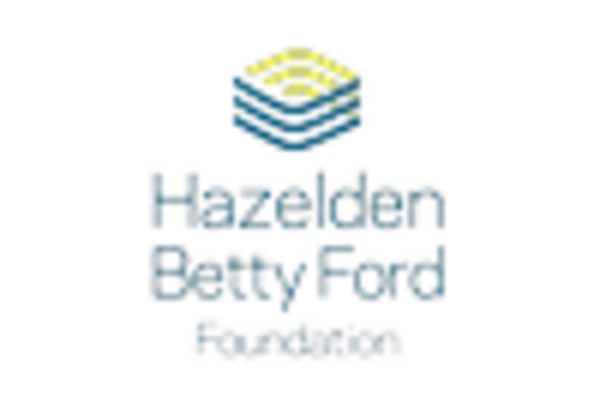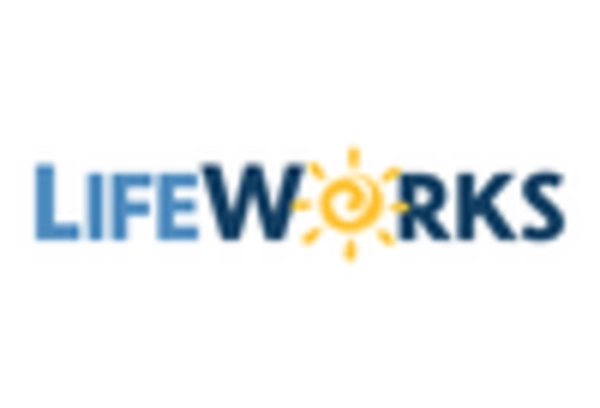Legislative Changes Supporting Treatment
Recent legislative changes in South Korea have created a more favorable environment for the substance abuse-treatment market. New laws aimed at reducing stigma and increasing access to treatment services have been enacted. For instance, the government has introduced policies that mandate insurance coverage for substance abuse treatments, which could potentially increase treatment accessibility by up to 40%. These legislative efforts not only enhance the availability of services but also encourage healthcare providers to expand their offerings. As a result, the substance abuse-treatment market is likely to experience growth driven by increased patient enrollment and a broader range of treatment options. The supportive legal framework is essential for fostering a culture of recovery and ensuring that individuals receive the help they need.
Growing Awareness of Substance Abuse Issues
The increasing awareness of substance abuse issues in South Korea is a pivotal driver for the substance abuse-treatment market. Public campaigns and educational programs have highlighted the dangers of addiction, leading to a societal shift in perception. This heightened awareness has resulted in more individuals seeking treatment, thereby expanding the market. According to recent data, approximately 30% of the population now recognizes substance abuse as a critical public health issue. This recognition is likely to foster a supportive environment for treatment facilities, encouraging investment and innovation within the industry. As more people understand the importance of addressing addiction, the demand for effective treatment options is expected to rise, further propelling the growth of the substance abuse-treatment market in South Korea.
Rising Incidence of Substance Abuse Disorders
The rising incidence of substance abuse disorders in South Korea is a significant driver for the substance abuse-treatment market. Recent statistics indicate that the prevalence of addiction has increased by approximately 15% over the past five years, particularly among younger demographics. This trend has prompted healthcare providers and policymakers to prioritize substance abuse treatment, leading to an expansion of available services. The growing number of individuals seeking help is likely to stimulate demand for various treatment modalities, including inpatient and outpatient programs. As the substance abuse-treatment market adapts to these changing needs, it may also see innovations in therapeutic approaches and support systems, ultimately enhancing recovery outcomes for patients.
Increased Collaboration Among Healthcare Providers
Increased collaboration among healthcare providers is emerging as a vital driver for the substance abuse-treatment market. Interdisciplinary approaches that involve various healthcare professionals, including psychologists, social workers, and medical doctors, are becoming more common. This collaborative model enhances the quality of care and ensures that patients receive comprehensive treatment tailored to their needs. Recent surveys indicate that facilities employing integrated care models report a 20% improvement in patient outcomes. Such collaboration not only streamlines the treatment process but also fosters a supportive network for individuals in recovery. As more providers recognize the benefits of working together, the substance abuse-treatment market is likely to see enhanced service delivery and improved recovery rates.
Technological Advancements in Treatment Approaches
Technological advancements are reshaping the landscape of the substance abuse-treatment market in South Korea. The integration of telehealth services and mobile applications has made treatment more accessible, particularly for those in remote areas. These technologies allow for real-time monitoring and support, which can improve patient engagement and adherence to treatment plans. Data suggests that the use of digital tools in treatment can enhance recovery rates by up to 25%. As technology continues to evolve, it is likely to play a crucial role in the development of personalized treatment strategies, thereby attracting more individuals to seek help. The substance abuse-treatment market stands to benefit significantly from these innovations, as they can lead to more effective and efficient care.


